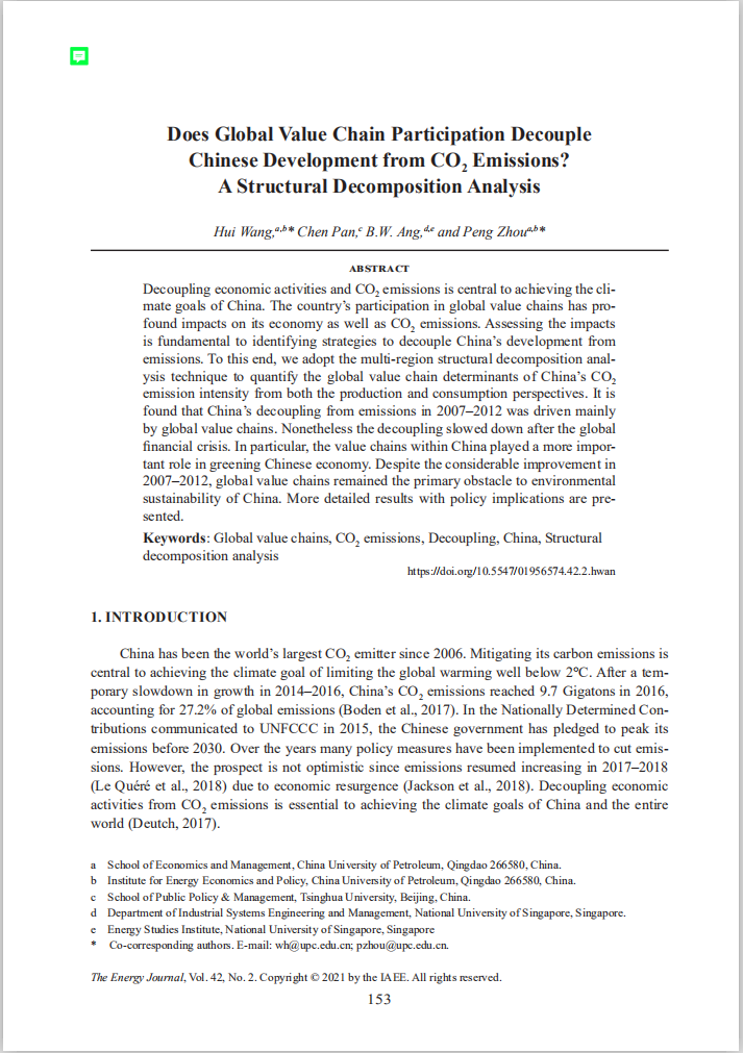1. 摘要
Decoupling economic activities and CO2 emissions is central to achieving the climate goals of China. The country’s participation in global value chains has profound impacts on its economy as well as CO2 emissions. Assessing the impacts is fundamental to identifying strategies to decouple China's development from emissions. To this end, we adopt the multi-region structural decomposition analysis technique to quantify the global value chain determinants of China’s CO2emission intensity from both the production and consumption perspectives. It is found that China’s decoupling from emissions in 2007–2012 was driven mainly by global value chains. Nonetheless the decoupling slowed down after the global financial crisis. In particular, the value chains within China played a more important role in greening Chinese economy. Despite the considerable improvement in 2007–2012, global value chains remained the primary obstacle to environmental sustainability of China. More detailed results with policy implications are presented.
2. 主要创新点
GVCs were the primary contributor to the decoupling of CO2 emissions from both production and consumption in China.
Compared to GVCs, domestic value chains within China played a more important role in greening Chinese economy.
The progress in decoupling China’s emissions along GVCs slowed down after the financial crisis.
The sectoral and regional structures of GVC linkages are captured from both the forward and backward perspectives.
3. 发表期刊
The Energy Journal

(首页截图)
全文链接:https://doi.org/10.1016/j.eneco.2020.105053



